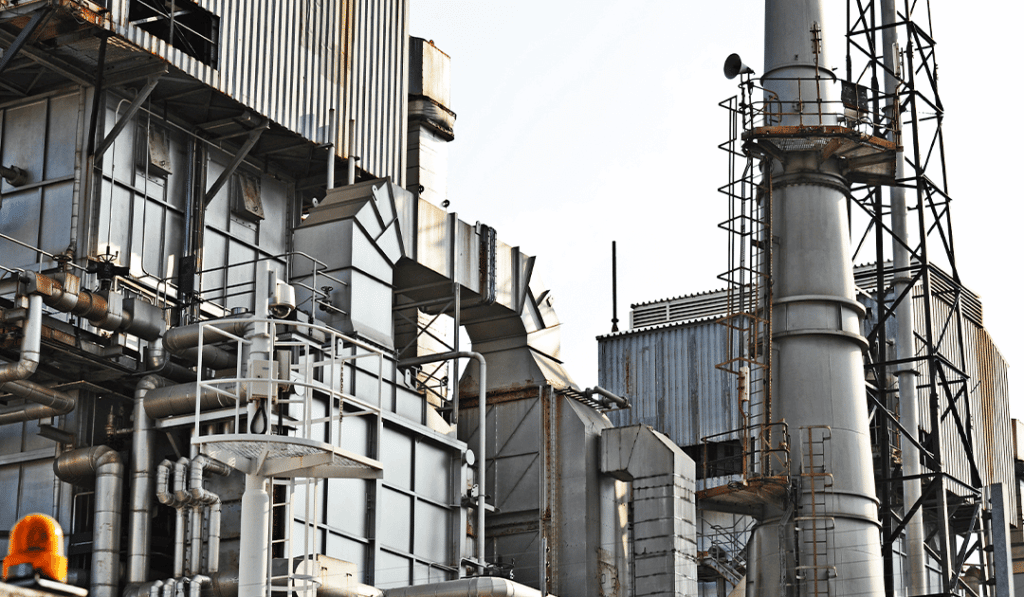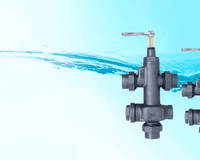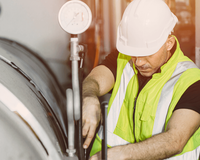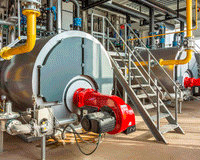Energy efficiency in boilers: Understand the importance

All professionals working in the industry know that one of the most talked about topics in this segment is the search for energy efficiency in boilers.
In view of this, understand why the industry must achieve maximum energy efficiency in boilers and what points influence this process.
Importance of energy efficiency in boilers
The use of heat is essential in the main manufacturing processes of many industries, so much so that it is a consensus that, without heat, modern society would not exist.
Almost all of these heat flows are obtained from steam systems (such as boilers). However, with rising costs, the search for energy efficiency in boilers has become a constant.
Basically, this concept is represented by the relationship between the useful energy made available and the total energy consumed.
By achieving this, the industry is able to:
- Reduction of expenses;
- Less impact on the environmental order, making production more sustainable;
- Enhancement of the company's image in society
These three points show the real importance of the relentless pursuit of energy efficiency in boilers. To achieve this, it is up to the industry to organize actions to prevent “money and pollution going down the chimney” or at least to reduce these effects.
Factors that influence the energy efficiency of boilers
The energy efficiency of any boiler is represented by the efficiency in converting the energy contained in the fuel required to produce steam (energy).
Given this definition, it is easy to see that the energy efficiency of boilers depends on the best possible use of fuel in order to reduce the waste of thermal energy.
However, operational issues also have an impact on the boiler, affecting its efficiency. These issues include:
- Percentage of excess boiler purges;
- Feed water temperature;
- Reduced calorific value of the fuel, associated with the moisture content;
- Excessive flow of boiler gases;
- Faults related to the boiler's thermal insulation;
- Poorly regulated boilers, making burning difficult;
- Unconverted fuel, represented by ash
In addition to these factors, the presence of scale and other dirt on the heat exchange surfaces inside boilers and the lack of preventive maintenance also compromise the energy efficiency of any boiler.
Tips to improve the energy efficiency of your boiler
Achieving energy efficiency in your boiler will necessarily involve optimizing all the factors we mentioned above. To do this, you should consider a few points.
The first point is to know the temperature of the exhaust gases. If the temperature is lower, performance may be good, but in the long term the useful life of the boiler may be compromised, as there is a possibility that the gases may begin to condense.
On the other hand, if the temperature of the gases is very high, it is worth adopting heat recovery devices, such as economizers, thus improving efficiency.
The quality of the feed water is also a very important point. To achieve this, it is recommended to consider the specifications of the boiler used, as well as the quality standards and the level of purity required for the steam.
Measuring gases is also an essential action to know how efficiently the fuel is burning.
Gas measurement will inform:
- Whether the burning is complete or not and the reason when it is not incomplete;
- If the heat released in the furnace is being used well and;
- Whether the volume/quantity of air during burning is ideal.
Finally, ensuring that the boilers are clean is another important point. By removing dirt and deposits, the gain in efficiency and reduction in fuel consumption will be very positive.
In the latter case, it is worth using the MBX 2000. This is the MBX solution that promotes the internal cleaning of steel pipes, removing dirt and improving energy efficiency.
Find out much more about boilers and their main accessories by accessing MBX blog .





